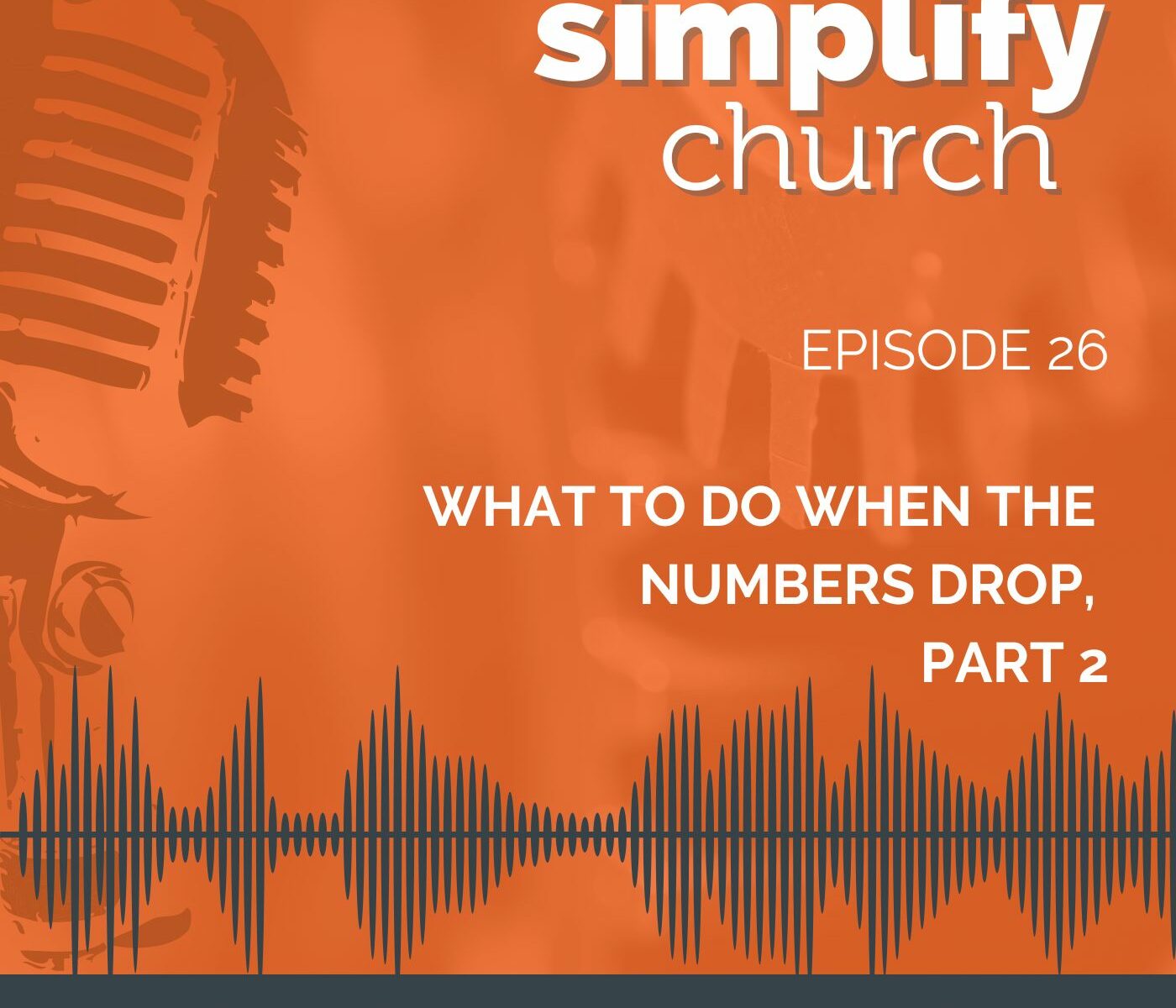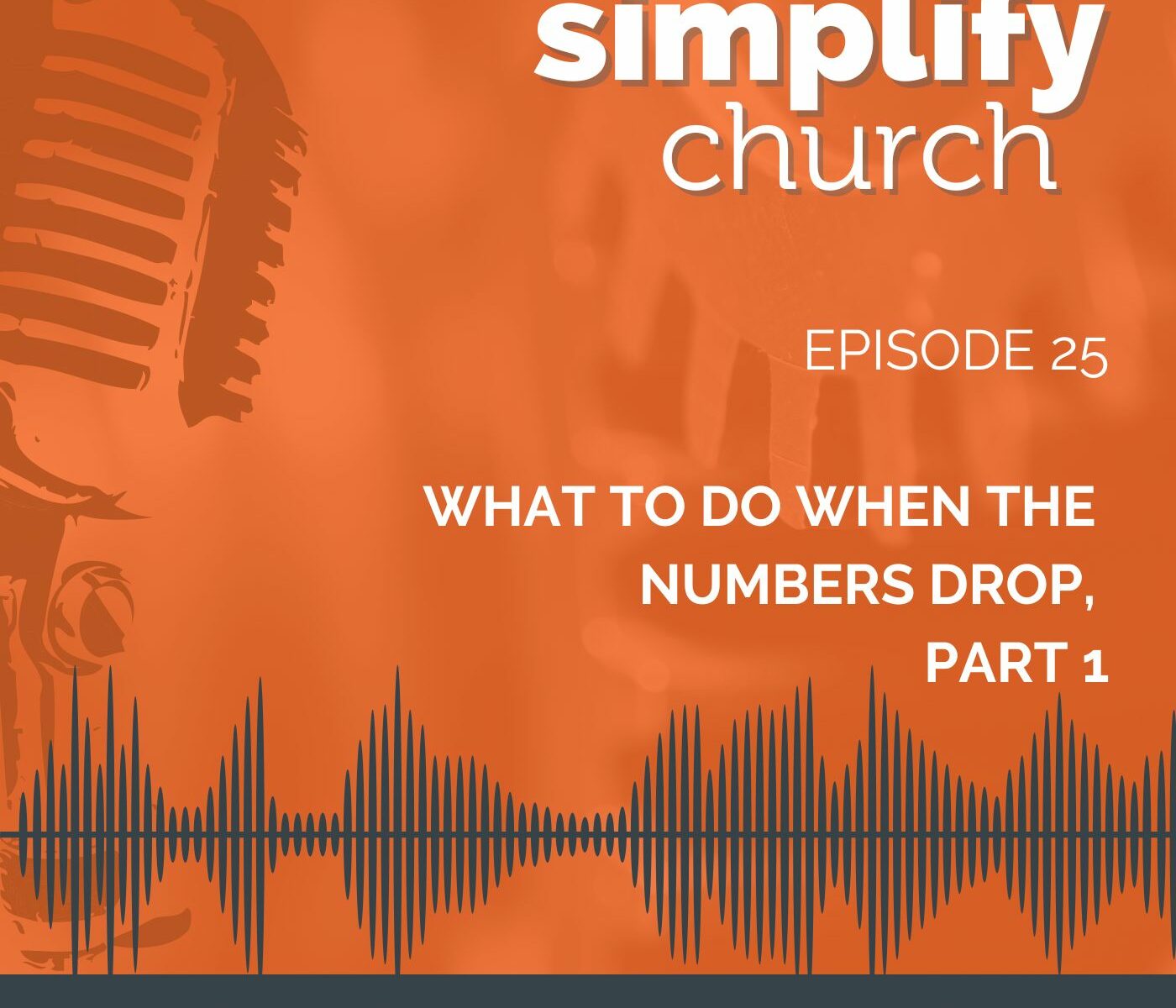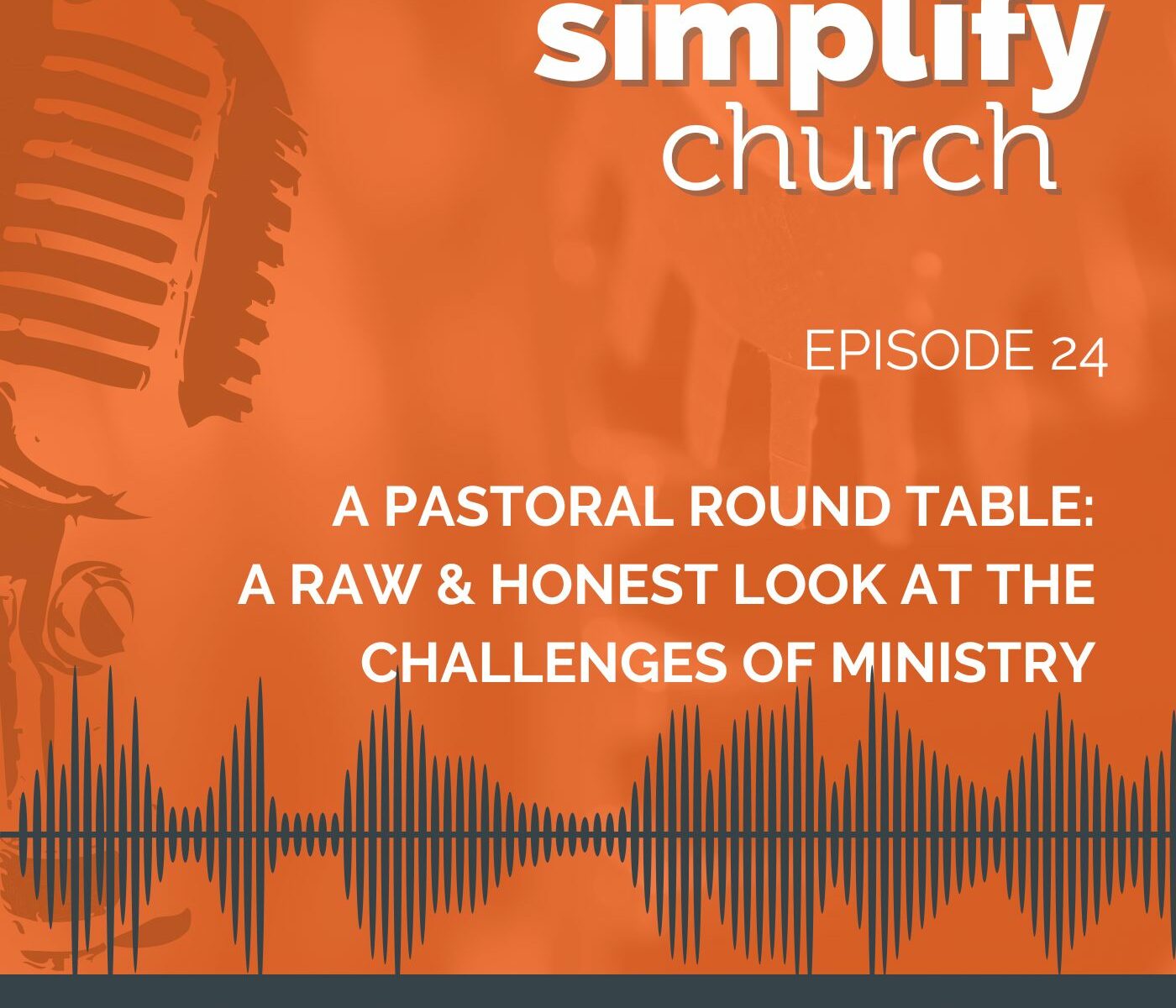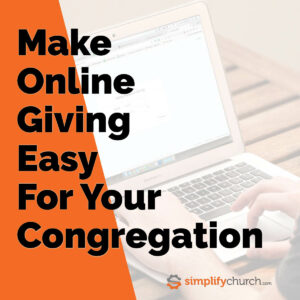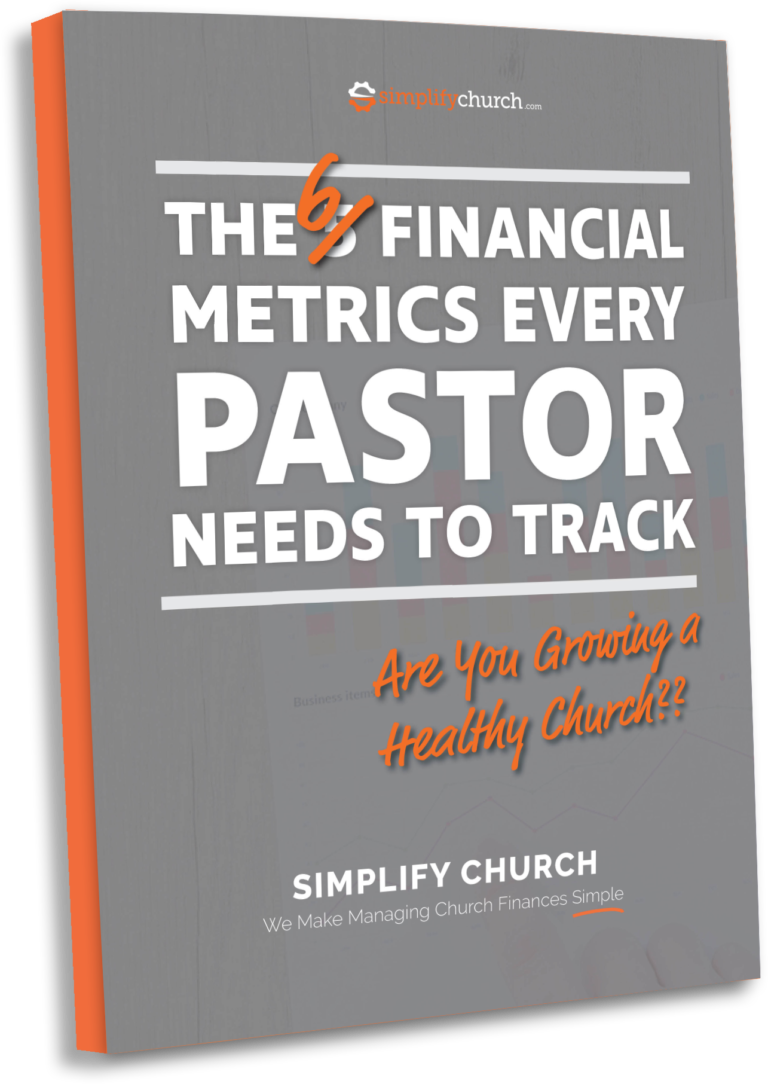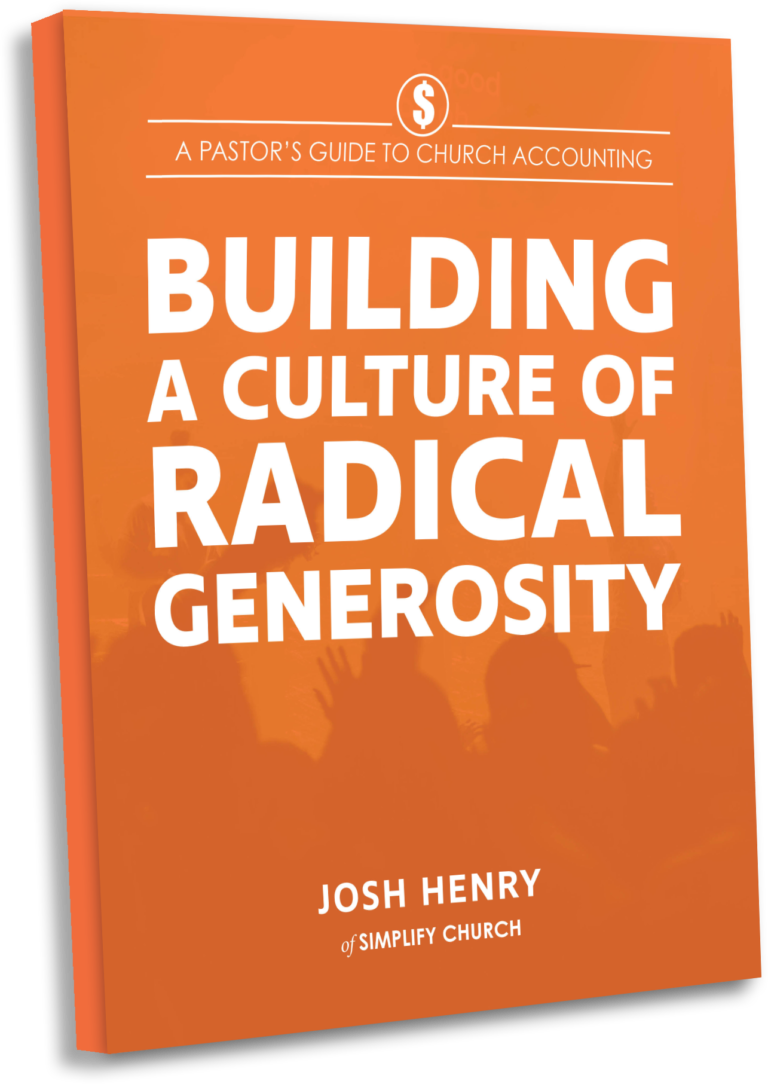Episode 25 – What To Do When The Numbers Drop Part 1
We all know that church attendance is in decline. The question is how do we respond to that? Seeing the numbers drop can often attack our sense of purpose as Pastors and Leaders. This week, Mike & Greg get into this important conversation and provide some surprising first steps on how to rightly handle this challenge.
Episode 24 – The Pastoral Round Table ( A Raw Conversation About the Challenges of Ministry)
This week’s episode is POWERFUL! Mike & Greg sit down with 4 other Pastors from various backgrounds and traditions and dig into some very specific pain points that ministry creates. You do not want to miss this!
Episode 23 – What to do when you’re feeling stuck
This week Greg & Mike get super practical about one of the biggest road blocks we experience in ministry, life, and our relationships. They dive into what to do when you’ve tried everything and nothing seems to be working and you feel you’re not going anywhere. Listen as they unpack 3 simple, yet very effective solutions for getting unstuck.
Younger Donors are Less Trusting of Charities Than Older Generations
Recent reports have discovered that younger donors are trusting charities and not for profits less than older generations.
This discovery needs to be strongly considered by churches and the pastors that lead them. According to numerous other reports, giving is down and with the rise of inflation in the United States, pastors need to consider how they are encouraging giving and generosity in their local church.
While the Biblical mandate of tithing should be sufficient, that unfortunately is not enough anymore to encourage people to be consistent givers to their church. As pastors, we have to find new ways to make generosity part of the DNA of our local ministry.
Let’s face the fact.
Giving to a local church is placing trust in that ministry that the funds will be stewarded well, and the church will do good things with the faithful gifts of the donor. People are skeptical and it’s ever more important for the local church to show it can be trusted with the sacrifice of their donors.
As pastor and church leader, we have two important roles in establishing trust to the donors of our church.
First, as we’ve already mentioned, it’s important to make generosity part of the DNA of our ministry. Not only should we talk about it, preach about it and make it part of our core values but we need to further that by exhibiting it in how ministry resources are utilized.
The key to increasing giving and generosity in the local church is to model to the donor that Their Giving equals Ministry Happening!
My Giving = Ministry Happening
My Giving = Ministry Happening!
SimplifyChurch Tweet
This can take many forms, but the basics are that each donor needs to be shown and reminded that they play an important role in funding the ministry of the church.
Most simply, send a quarterly giving statement to each donor showing their giving Year to Date. Not only that, attach a thank you letter that shares stories of lives impacted. Provide tangible explanations of ministry that happened that was a direct result of the generosity of your donors. It cannot be shared enough, trust me.
Secondly, your donors need also to find trust in a transparent and foundational financial management system for your church.
They need to see that the funds are being stewarded and managed professionally. Gone are the days when trusting “Sister Susan” as volunteer bookkeeper.
Consider a solution like SimplifyChurch Bookkeeping to manage your church bookkeeping and accounting. Our system has proven over almost 2 decades that a solid church bookkeeping foundation is key to reaching and retaining faithful donors.
Your ministry is too important to not take giving and generosity very seriously. It’s not enough to just hope that people will be faithful. It’s not enough to assume people will see the need and step up. As pastor, you have to consistently remind your congregation that giving is not only a big step in their spiritual development but is vitally important in that success of your local ministry.
Interested in a "done for you" Church Bookkeeping System?
Why Having a Vision for Your Church Matters
Where Is Your Church Headed?
Every ship requires a compass. The compass, an instrument for navigation, indicates where the ship is headed. Without it, the vessel drifts aimlessly and often ends up off course.
Similarly, when it comes to church leadership, a clearly defined vision serves as a compass, indicating where the church is headed. Casting a vision for your church isn’t merely a buzzword or helpful leadership tactic; it’s an essential component of long-term church health and ministry effectiveness.
Unfortunately, many churches lack a clear understanding of why having a vision matters, and how to go about creating and communicating that vision. In this blog post, I want to unpack what exactly a church vision is, why having vision is so important, and provide some suggestions for where to begin when it comes to creating and communicating a vision for the future of your church.
What Exactly is a Church Vision?
Crafting a vision for your church is the process of creating a clear, inspiring and compelling statement that outlines the future direction and impact of the church. It is a process that helps align the unique gifts and resources of your organization with God’s will, and wisely plan for how to best use these resources.
The vision should both reflect who you are as an organization, and set direction for where you are headed. It serves as a guidepost to help the church make better decisions, prioritize spending, and get everyone moving in a unified direction.
Does a Church Need a Vision?
Often, I find that churches – especially smaller ones – tend to shy away from vision casting. Perhaps it’s because it takes valuable time to intentionally think about who the church is, why it exists and where it is going. Perhaps it’s because church leaders simply don’t know how to do this well. Or perhaps it’s because some churches view planning for the future as a lack of trust and reliance on God.
Let me be clear, for a church, a strategic plan is not simply a projection-based exercise. It is a process that both begins and end with prayer. Ultimately, God is the one that gives vision. But we partner with God to take action toward accomplishing that vision. Our attitude in this process should always be to seek God’s will in all things and to pray that our hearts with be aligned with His.
When we do, we make space for God to move in and through our church. Creating a vision statement, then, not only aligns our actions with God’s will, it sets our church up for long-term health. Because having a vision to guide our ministry decisions, brings meaning, it sustains ministry, it motivates those that are a part of our congregation, and it energizes the growth of our organization.
Why is Vision so Important in the Church?
Having a vision is incredibly important for the health and longevity of your church. Not only does it set direction and guide ministry decisions, it sustains ministry, motivates those that are a part of the congregation, brings meaning, and energizes the growth of your organization. Here are seven reasons why we believe vision casting is an essential part of a healthy, thriving church:
1. It Clarifies Purpose
- Every church has a purpose beyond Sunday services. Casting a clear vision helps members understand that larger purpose. Where there is a lack of clarity, people begin asking questions about what the goal of our church is. With a vision, the answer becomes clear.
2. It Unites The Congregation
With a shared vision, the congregation becomes united in purpose. Instead of multiple groups pulling in different directions, everyone moves forward with a common goal in mind, fostering unity and collective strength.
3. It Inspires Action
When the people of your church understand the vision, they are more likely to get involved. Whether it’s joining a ministry, participating in community outreach, or giving generously, a compelling vision can motivate action.
4. It Guides Decision-Making
For church leaders, countless decisions arise daily. Having a well-defined vision offers a touchstone against which all decisions can be measured. Does a potential program or initiative align with the vision? If not, it might be worth reconsidering.
5. It Helps Overcome Obstacles
Every church faces challenges. But with a clear vision, these challenges become surmountable obstacles rather than impassable roadblocks. The vision reminds everyone of the bigger picture and the higher calling.
6. It Encourages Generosity
When people have a vision to support, it both builds trust in how the leaders of the church are stewarding the resources, it gives people a reason to give. People are much more willing to support a cause, when they know what that cause is and why it matters.
7. It Facilitates Growth
As the saying goes, “If you aim at nothing, you’ll hit it every time.” A church without a vision will stagnate. But with a vision, you provide a framework for growth, both spiritually and numerically.
We go into greater detail on this topic on episode 39 of the Simplify Church podcast. Listen in your favorite podcast player, or by visiting the podcast library on our website.
What if Our Church Doesn’t Have a Vision?
Unfortunately, many churches lack a clear and compelling vision for their church. If you find yourself in this position, know that you are not alone. The good news is that developing a strategic and compelling vision does not have to be a complicated process.
Here at Simplify Church we want to give you some practical tools to help you craft a vision for your church. Next week, our Chief Simplifier, Josh Henry, will be going LIVE to share a free training to help you do just this.
You can register for the training (or to get the replay) HERE.
Are You Ready to Cast a Vision for Your Church?
Casting a vision for your church is not about crafting a catchy slogan or setting unrealistic expectations. It’s about seeking God’s heart for your community and communicating that purpose with clarity and passion. As Proverbs 29:18 says, “
By casting a vision, you’re ensuring your church doesn’t just survive but thrives for the glory of God.
Should My Church Outsource Church Bookkeeping?
Should You Outsource?
Church bookkeeping is not often a subject they teach in seminary. It’s often seen as one of the “necessary evils” of church organization. Bookkeeping is rarely viewed as an important element of church management, and outsourcing church bookkeeping is not often high on the list of financial priorities for the church. For church plants and small churches, it is often seen as a luxury. More often, church bookkeeping is often turned over to a volunteer or member with some financial experience.
After almost two decades of working and serving churches, we’ve learned that certain areas of ministry are too important to rely on in-house volunteers. Church bookkeeping is one of those areas.
The problem is that if neither the pastor or the well-meaning volunteer knows how to properly set up and maintain a proper church accounting system, you end up with an ineffective church bookkeeping system at best…and often financial errors that can end up costing the church much more in the long run.
Good Stewardship in Churches
None of these financial decisions are made with ill-intent. Indeed, in attempting to be a good steward of the financial resources entrusted to the church, there is an appeal to using a volunteer to save on costs, or to use an in-house church member to make things simpler. However, in our experience in working with hundreds of churches, this often creates more problems than it solves. Our hope is to help more churches avoid all-too-common financial mistakes and implement best practices for more effective church stewardship.
What Does a Church Bookkeeper Do?
When it comes to best practices for church finances, one of the most common questions we get is, why should we hire someone outside our church to do church bookkeeping? Before we discuss some of the benefits of outsourcing church bookkeeping, I think it’s important to lay the foundation for what a church bookkeeper should be doing for your church.
Church bookkeeping is an essential role, as it helps ensure that the church is using its resources wisely and responsibly. Here are some specific tasks that a qualified church bookkeeper should be doing for your church:
- Recording all financial transactions: The bookkeeper should ensure that all financial transactions, including donations, expenses, and salaries, are accurately recorded in the church’s financial system
- Reconciling accounts: Your bookkeeper should regularly reconcile bank accounts and credit card statements to ensure that all transactions are accounted for and that there are no discrepancies
- Generating financial reports: The bookkeeper should be able to generate financial reports, such as income statements and balance sheets, to help the church leadership make informed decisions about the church’s finances
- Managing payroll: If your church has employees, the bookkeeper should be responsible for processing payroll, including calculating salaries and deductions, and ensuring that payroll taxes are paid correctly
- Managing accounts payable and receivable: The bookkeeper should be responsible for managing accounts payable (bills that the church owes) and accounts receivable (money that the church is owed)
- Ensuring compliance: The bookkeeper should be knowledgeable about relevant tax and accounting regulations and ensure that the church is in compliance with these regulations
- Recording all financial transactions: The bookkeeper should ensure that all financial transactions, including donations, expenses, and salaries, are accurately recorded in the church’s financial system
In essence, a knowledgeable church bookkeeper plays a critical role in managing the financial affairs of the church. A good bookkeeper can help the church make wise financial decisions, while a well-meaning, but untrained bookkeeper can end up costing the church a lot more in the long run.
How is Church Accounting Different from General Accounting?
A second question we often receive is, how does church accounting differ from standard accounting?
One of the biggest reasons that I am such a proponent of churches outsourcing their church bookkeeping and accounting roles, is that financial management for churches is very unique. It is important that whoever is handling the church’s finances be informed about tax guidelines and best practices for structuring a chart of accounts for churches. Unfortunately, there are a lot of misconceptions and incorrect advice being given.
Like other nonprofits, churches often fall under the direct requirements of the 501(c)3 tax code. Additionally, churches often rely on a number of different sources of revenue, that depend on the generosity of your church’s congregation. Sometimes restrictions can accompany these revenue sources. Using this money outside of its designated purpose can create issues for the church and can even cause a church to lose its 501(c)3 status.
Call them restricted funds, designated accounts, or donor designated giving, these funds are a popular- and widely misunderstood – aspect of church accounting. Although beyond the scope of this article, we advise churches on how these types of funds can actually be harmful to a church’s bottom line, and how to successfully move away from these designated funds.
The bottom line is that while church bookkeeping and accounting involves many of the same principles as standard accounting, there are unique considerations specific to churches. In our opinion, it is essential that whoever is managing the church finances understands these differences, so that the church can effectively steward its financial resources.
Does it Matter Who Does the Church Bookkeeping?
There will always be those that say it doesn’t matter who does the church bookkeeping, so long as it gets done. And as a starting point this is true. Doing your books is better than not doing the books. But unless the books are completed accurately, efficiently and with the best interests of the church in mind, it is a recipe for failure.
We understand that there is a strong temptation to save on costs by letting a volunteer manage the church’s books or assigning it as an additional duty to a church staff member. Based on our experience in working with hundreds of churches, this practice does not set your church up for long-term health and financial success. Here are six reasons to outsource your bookkeeping and accounting.
6 Reasons to Outsource Church Bookkeeping and Accounting
1. Expertise and Experience
Church-specific bookkeeping firms have specialized expertise and experience in bookkeeping, accounting, and financial management for churches and non-profits. They can provide a higher level of expertise, which can lead to more accurate and informative financial statements, better budgeting and forecasting, and improved financial decision-making.
Church finances can be difficult and confusing. Add in misconceptions, a lack of knowledge about best practices for church financial management, and frequent turnover on who is actually responsible for ledger inputs, and it only takes so long before no one really knows what’s going on.
Did you know most churches transition volunteer bookkeepers every two to four years? Often, it’s just a matter of time before you have a “Frankenstein-ed” financial system.
Beyond “normal” bookkeeping standards, there are additional requirements that come into play because the church organization is more than likely a not-for-profit organization. And, as mentioned above, many churches operate and maintain designated funds, with donor money allocated to particular projects and events. Proper fund management, along with correcting an unorganized financial record-keeping process, can be overwhelming for a volunteer, even one that has previous experience in accounting.
2. Objectivity
A second reason to consider outsourcing church finances is a sense of objectivity. Outsourcing bookkeeping to someone not connected to the local congregation provides a level of objectivity that may not be possible with an in-house bookkeeper. A neutral, third-party bookkeeping firm is not emotionally invested in the church; therefore, they can provide a more objective view of the church’s financial situation.
Candidly, if you’ve been around enough churches, you are likely to hear horror stories about church finances, such as the over-zealous treasurer who sees their role as the gatekeeper for all spending.
I’ve heard several variations of this story. The well-meaning church treasurer views themselves as the sole expert on the church’s finances, and, in so doing, begins to dictate to the pastor and church elders how the financial resources of the church should be spent.
While oversight is important, this situation can lead to a lot of conflict over how ministries are funded and cause a lot of hurt feelings in the process. Sometimes, the person handling the church’s finances can even be the reason church members are hesitant to give to the church.
3. Cost Savings
Hiring an in-house bookkeeper can be costly, as it requires paying a salary, benefits, and other overhead expenses. Outsourcing bookkeeping can be more cost-effective, as the church only pays for the services they need and can avoid the expenses associated with hiring an employee. Once you hire the first employee for the church, the organization and operating requirements become infinitely more complex.
What about using a volunteer? On paper, it can look like you are saving the church money by using a volunteer instead of outsourcing financial oversight. However, as this article describes in greater detail, you usually get what you pay for.
Free is rarely ever free. There is always some type of cost involved. The church finances are now just another task on the volunteer’s to do list. How long will you have to wait to get a check request processed? Will they be able to provide you with regular reports and get you financial numbers when you need it? What will you do when the person goes on vacation, or has a family emergency arise?
In addition to relying on the volunteer’s schedule, using someone that isn’t knowledgeable about best practices for church financial management can actually end up costing the church more in the long run. Many churches find that having a dedicated church bookkeeping partner helps the church better save and spend resources, saving the church money.
4. Time Savings
Again, the temptation to find someone on your church staff, or within your congregation, to manage the books is normal. But in addition to the hidden financial costs trying to manage it all on your own, the DIY approach can waste valuable time, cause a lot of headaches, and take resources away from where they would be most effective. This is what we call ministry opportunity cost. If the responsibility takes time and energy away from something that you’re better at, or should be focused on, it will actually cost more in the long run.
For example, you know that Suzie has an accounting degree, so you ask her to manage the church finances. However, even though she’s able to do bookkeeping, is that where Suzie can best utilize her gifts? Is that where she feels called to serve? What if she would be better serving on the worship team, or leading a bible study?
Most churches I know struggle to find enough ministry volunteers as it is. And, often times, churches ask their members to volunteer to the point of burnout. This is not an effective strategy for long-term health and future church growth.
Outsourcing church bookkeeping to church financial experts can actually save the church time, allowing church staff to focus on other important tasks, such as ministry and outreach. And it can prevent you and your church volunteers from burning out.
5. Compliance
If you and your team are wasting valuable time and energy trying to do it all on your own, remember that good enough is not the goal. Third-party church bookkeeping firms stay up-to-date on the latest laws and regulations governing financial reporting and compliance. They can help ensure that the church is in compliance with all regulations and avoid potential legal or financial penalties.
Going back to the earlier discussion on expertise and education, if a volunteer (or paid) bookkeeper classifies an employee incorrectly because they didn’t know the correct guidelines, you could be subject to back taxes and penalties. Unfortunately, ignorance of the law is never a valid excuse when appealing to the IRS.
6. Liability
In general, bookkeepers are responsible for accurately recording and tracking financial transactions for their organization. Volunteer bookkeepers and in-house bookkeepers are typically subject to the same legal and financial standards as professional bookkeepers. This means they can be held liable for mistakes or errors in their work, just like any other bookkeeper.
If errors or omissions occur, the bookkeeper (paid or volunteer) can be held responsible for any resulting financial losses or damages. This can include errors in financial reporting, failure to comply with tax regulations, or improper handling of financial data. However, the extent of their liability may depend on their specific role and responsibilities within the organization.
To minimize the risk of liability, it’s important for volunteer bookkeepers and in-house bookkeepers to receive appropriate training, follow best practices for bookkeeping, and seek professional advice when needed.
If all this sounds overwhelming, remember we’re here to partner with you in ministry and take the burden of managing church finances off your shoulders, so you can focus on growing a healthy church!
How Much Does it Cost to Outsource Church Bookkeeping?
Outsourcing church bookkeeping can provide many benefits, such as saving time and reducing the risk of errors, and ultimately helping the church to better manage its finances. But it’s important to understand that the types of bookkeeping firms vary, and the costs associated with using them can vary widely.
We recommend doing your homework and choosing to partner with the service that best fits your church’s needs and budget. Here are some questions to consider when it comes to choosing an third-party bookkeeping service.
- Does the service offer a monthly fee option, or do they charge by the hour? Some organizations offer a monthly flat fee, depending on the size and complexity of the church’s financial transactions.
- Does the service understand the unique needs of churches? Are they experts in the complexities of church accounting, or do they at least know the ins and outs of not-for-profit guidelines?
- Is it a turnkey solution? Does the service use standard bookkeeping software, or do they offer proprietary systems and processes designed to streamline and simplify church bookkeeping for churches?
- Is it a piece of software, or a done-with-you service? Some services provide church accounting-specific software, but no on-going support or guidance. If they do provide guidance, often it is just reviewing the work you did in their software and not really having an active role in the process.
- Are they a one-stop shop? Does the service reconcile your accounts, generate financial reports, manage accounts payable and receivable, and ensure compliance?
- Do they offer tiered pricing? Is it a flat fee, or do they offer pricing based on the size of the church and the complexity of the accounts? Don’t pay for more than you need!
- Are they mission-focused? Does the service care about partnering with you in ministry, to allow you to focus on reaching more people for Christ?
- Does the service offer a monthly fee option, or do they charge by the hour? Some organizations offer a monthly flat fee, depending on the size and complexity of the church’s financial transactions.
When is it Time to Outsource Church Bookkeeping?
How do you know when it’s time to outsource church bookkeeping? As most church planters know, sometimes it’s all-hands-on-deck to get a church up and running. Even though the goal may be to eventually transition to a third-party bookkeeping service, it can sometimes feel financially out of reach. So how do you know when the church has the resources to utilize a bookkeeping service?
Obviously, each church’s financial situation is unique and the decision to utilize a bookkeeping service should be based on the specific needs and goals of the church. But it is worth talking with a qualified accountant or church financial professional, regardless of the size and resources of your church.
Often it is church finances are what trip pastors up the most. Many churches find that having a dedicated church bookkeeping partner helps the church better save and spend resources, saving the church money and allowing the church to grow.
Simplify Church was originally founded to help church planners launch and manage their finances and accounting. That’s why we offer a scalable system designed to grow with your church or organization, from conception to established ministry. We have a tiered pricing structure designed specifically for church planters, who often have limited startup funds.
Don’t hesitate to talk with a church bookkeeping company or church financial advisor and ask what options they may have to support the needs of your church.
Bookkeeping Tips for Small Churches
Having a church bookkeeping service may seem like a luxury for small churches. But creating a healthy financial foundation can actually set your church up for success in the long run. At Simplify Church, we believe that you shouldn’t have to be a large church (or have the budget of a large church) to get the tools, and dedicated support and advice to make smart financial decisions for the health of your church.
Our sweet spot is helping small-to-medium size churches with church finances. We offer affordable options based on the size and of your church. We’re here to take the burden of managing church finances off your shoulders, so that you can grow a healthy, thriving church.
Best Bookkeeping for Churches
If you aren’t 100% confident in how your church finances are being handled, then it’s time to get the help you need to build a financially healthy church.
At Simplify Church, we’re here to partner with you in ministry and take the burden of managing church finances of your shoulders, so you can focus on growing a healthy church.
We understand the challenges of doing ministry, because we’ve been there. When you choose to partner with Simplify Church, you get an entire team of church bookkeeping experts dedicated to helping your church thrive. We get church AND business.
Get the confidence and support of a team that knows exactly how to help churches build strong financial foundations. We’d be happy to jump on a call and show you what’s possible for your church. Let us worry about the financials so you can focus on ministry.
Should Churches Use Venmo to Receive Donations?
Can Churches Use Venmo for Giving?
At Simplify Church, we provide financial expertise and support to make managing church finances simple. We’ve helped hundreds of small and growing churches optimize their church finances. One question we hear often is, “Can my church use Venmo (or a similar online payment app) to accept donations?
If you aren’t familiar with the app, Venmo is a popular mobile payment service in the United States that allows users to send and receive money from their friends and family members. Venmo allows users to link their bank accounts or debit cards to the app and then use it to make payments or request money from their contacts. Venmo is free to use for personal transactions, but there are fees for using it for business transactions or transferring funds to a debit card.
Why Churches Use Venmo
Not all that long ago, we were having conversations with churches about the importance of offering online giving. Established churches were hesitant to make the leap and had concerns about transferring money electronically.
Over the last few years, there has been a dramatic shift in the conversation about online giving for churches. More and more churches have seen the value and the need to make giving simple and easy for people to do. Solutions that provide online giving, text-to-give, and allow for reoccurring donations, all make giving to churches much easier to do (and can be done from the comfort of home).
However, as with many cultural shifts, the pendulum often swings too far to the other side. If one online giving option is good, shouldn’t we offer lots of online giving options? While online giving helps both churches and their donors, there are some concerns to be aware of when using common payment apps, such as Venmo, to collect donations.
The Problem with Using Venmo for Your Church
While Venmo can be a convenient way to collect money for your church, there are some potential issues to consider.
Congress recently passed new regulations that require payment apps to issue a 1099-K for any user who has given an amount over $600 to your ministry. While a donation to your ministry is more than likely non-taxable, since these apps offer a generic money transfer, there really isn’t a way to distinguish between a donation and sale through the system.
While trying to offer numerous giving options to your ministry, this may create a hassle for your donors who may receive an automatically generated 1099-K from the provider. Additionally, this will cause more hassle and workload for your ministry, as those donations will definitely trigger a form to be produced for your organization. This will then require that you provide proof that the money given was in fact received as a donation, and no goods or services were provided in exchange.
If you do choose to receive donations through Venmo, or another generic online payment app, you may want to consult with a tax professional to ensure that your church is compliant with any relevant tax laws. Overall, Venmo can be a useful tool for collecting donations for your church, but it’s important to carefully consider the potential issues and risks before deciding to use it.
Venmo is Not Designed for Churches
Churches, which are tax-exempt non-profit organizations in the United States, should exercise caution when using Venmo to collect donations. Here are some reasons why:
- Venmo’s terms of service prohibit commercial use: Venmo’s terms of service prohibit the use of the app for commercial purposes. While it’s possible to use Venmo to collect donations for a non-profit organization, there is a risk that Venmo may consider this to be a violation of their terms of service.
- Lack of donor information: Venmo does not provide organizations with detailed information about their donors, which can make it difficult to issue receipts or acknowledge donations for tax purposes.
- Difficulty tracking donations: Venmo does not provide robust reporting or tracking tools, which can make it difficult for organizations to track their donations and ensure that they are properly accounted for.
- Compliance with IRS regulations: Non-profit organizations are subject to strict regulations regarding the collection and reporting of donations. Venmo’s lack of reporting tools and detailed donor information could make it difficult for organizations to comply with these regulations.
- Venmo’s terms of service prohibit commercial use: Venmo’s terms of service prohibit the use of the app for commercial purposes. While it’s possible to use Venmo to collect donations for a non-profit organization, there is a risk that Venmo may consider this to be a violation of their terms of service.
At the end of the day, while Venmo can be a convenient way to collect donations, it is not an app designed for churches. It’s important that churches carefully consider the potential risks and limitations of the app before deciding to use it. In our opinion, there are other, more appropriate tools and platforms available that are much better suited to the needs of churches.
Venmo Alternatives for Church Tithes and Donations
Using a giving app specifically designed for processing donations to churches is a much better option for churches (and their donors). We recommend SimplifyGive, our online giving solution created with small and growing churches in mind.
SimplifyGive is designed to make online giving simple for churches and donors. It includes text-to-give, reoccurring donations, and the ability to give online or through a mobile responsive, personalized giving page. The app is focused on keeping costs down, so that the maximum amount from each gift goes to the church for ministry. All gifts received through SimplifyGive.com are automatically identified as gifts, so they will not be subject to any taxable records to your ministry. At the same time, it offers easy-to-access, valuable church giving metrics, so that you can better lead and grow your church.
How to Choose The Right Giving Platform For Your Church
Choosing the right giving platform is an important decision for your church. While we believe in the value, the convenience, and the simplicity of SimplifyGive, here are a few things to look for as you seek to find the right giving platform for your church:
- Payment Options
Consider what payment options are available on the platform. Does it accept credit and debit cards, bank transfers, and other payment methods that your donors are likely to use? - Pricing Structure
It’s important to understand the fee structure of any giving platform you are considering. Look for platforms that offer reasonable fees and simple, transparent pricing. - Plug-and-Play Website Integration
Does it easily integrate giving forms into your church’s website in a few simple steps? - Customizable Giving Pages
Do the giving forms feature your custom logo and colors, so your donors know exactly who they are giving to? - Multiple Fund Designations
Is the system set up to support fund accounting? If you use fund accounting, our system makes it easy for your donors to specify where they’d like to give. - Integrated Donor Data
Look for platforms that provide detailed donor data, including names, contact information, and donation history. This can be important for issuing receipts, acknowledging donations, and producing donor statements simply and easily. - Security
Make sure the platform you choose has robust security measures in place to protect your donors’ personal and financial information. SimplifyGive is PCI Level 1 compliant and provides top-notch security, giving both you and your donors peace of mind. - Reporting and Tracking
Consider what kind of reporting and tracking tools are available on the platform. Can you easily track donations and generate reports?
- Payment Options
Should your church use Venmo, Paypal, Cash App or another online payment method?
Tax issues aside, there is nothing to prevent your church from using Venmo, Paypal, Cash App or another online payment method to collect tithes and donations for your church. However, using Venmo or another money transfer app is not the best option for your church. While using these apps may seem to be convenient and offering those options may be tempting to increase giving, the added hassles will probably make them not worth the effort.
You owe it to your donors, your accounting staff and your ministry to be the best steward of the resources available to your church. Choose an affordable online giving platform designed for small and growing churches, like SimplifyGive. Using our quick, no-fee sign up process and simple plug-and-play website integration, we can have your church accepting donations in a matter of minutes!
Episode 22 – The Wounded Pastor (Part Two)
This week, Mike & Greg continue their conversation with Dr. Matthew Tanner about the life changing impact that Unjustifiable Termination and Forced Resignation can have on a Pastor and his family.
In this week’s Episode Dr. Tanner will share what life can be like on the other side of healing.
Check out Dr. Tanner’s book: https://www.amazon.com/Wounded-Pastor-Unjustifiable-Termination-Resignation/dp/1948901854
Check out the website: https://www.woundedleadership.com
More resources:
SIMPLIFY CHURCH INSIGHTS
Get church financial advice, leadership tips, and organizational best practices delivered to your inbox to help you simplify and grow your church. Subscribe Now.
A BETTER WAY TO BUDGET
Church Budget Blueprint: The #1 Church Budgeting Course for Small & Growing Churches
WE MAKE MANAGING CHURCH FINANCES SIMPLE
Grab a Free Consult: SimplifyChurch.com
Episode 21 – The Wounded Pastor (Part One)
This week Greg and Mike are kicking off a powerful TWO PART conversation as they sit down with Dr. Matthew Tanner and discuss the life changing impact that Unjustifiable Termination and Forced Resignation can have on a Pastor and his family.
In this week’s Episode you will meet Dr. Tanner and have a chance to hear his story and why he wrote The Wounded Pastor. Then we will come back next week with a healing strategy for how to overcome this terrible wound.
Check out Dr. Tanner’s book: https://www.amazon.com/Wounded-Pastor-Unjustifiable-Termination-Resignation/dp/1948901854
Check out the website: https://www.woundedleadership.com
More resources:
SIMPLIFY CHURCH INSIGHTS
Get church financial advice, leadership tips, and organizational best practices delivered to your inbox to help you simplify and grow your church. Subscribe Now.
A BETTER WAY TO BUDGET
Church Budget Blueprint: The #1 Church Budgeting Course for Small & Growing Churches
WE MAKE MANAGING CHURCH FINANCES SIMPLE
Grab a Free Consult: SimplifyChurch.com

